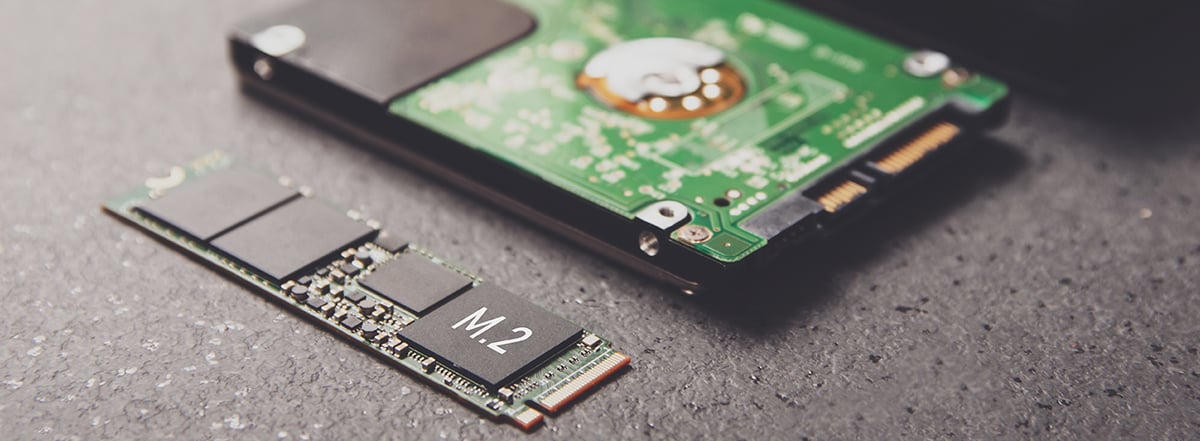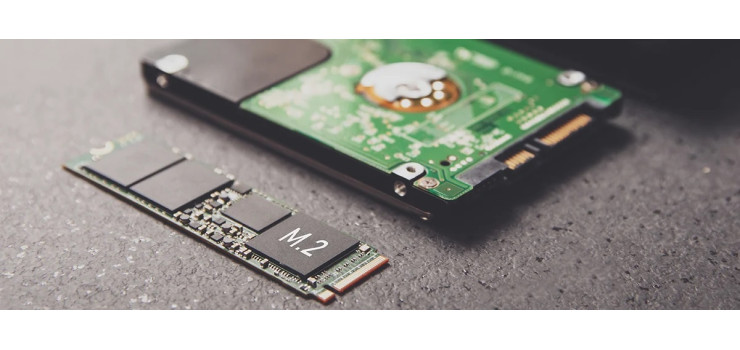
What's the difference between an HDD and an SSD?
HDDs are traditional storage devices with spinning platters that read and write data. SSDs use newer technology to store data on instantly-accessible memory chips. SSDs are faster, quieter, smaller, more durable, and consume less energy, while HDDs are cheaper and offer more storage capacity and easier data recovery if damaged.
SSDs and HDDs are both storage devices, but the way they work is quite different. The main difference between a solid state drive (SSD) and a hard disk drive (HDD) is how data is stored and accessed. HDDs use mechanical spinning disks and a moving read/write head to access data, while SSDs use memory chips.
If price isn’t an issue, SSDs are a better option — especially since modern SSDs are just about as reliable as HDDs. In the image below, the laptop on the left has a traditional hard disk drive, while the one on the right has a solid state drive.
What is a solid state drive (SSD)?
Solid state drives (SSDs) are newer types of disks that store information on flash memory, which consists of individual memory cells storing bits that are instantly accessible by the controller. SSD speeds vastly outpace those of HDDs, and the rapid data transfer will improve your computer’s performance drastically.
How do SSDs make your computer faster? SSDs improve the speed at which large amounts of data are loaded at once. The following processes work faster with an SSD:
Booting up your operating system
Starting a program
Loading a new video game level
Opening a huge file in a resource-intensive program
Importing and exporting video files
Previewing video files in editing software
When we talk about performance, we mean the transfer of large bunches of data all at once. An SSD won’t necessarily help Chrome run more smoothly when 100 tabs are open and your overall RAM is low, and video editing software will struggle if your processor is many years old.
What is a hard disk drive (HDD)?
An HDD enclosure contains a series of platters covered by a ferromagnetic coating. The direction of the magnetization represents the individual bits. Data is written and read by a fast-moving head, similar to the way vinyl record albums work. The disk spins at 7200 RPMs so data can be read very quickly.
Since all of these pieces are mechanical, the hard disk is the slowest and most fragile component of any computer. But HDDs can be extremely cost efficient for long-term offline storage, as most of the benefits of an SSD over HDD are only related to day-to-day usage — for example, the rate at which they can load large files and programs.
If you’re wondering whether you have an SSD or HDD, here’s how to find out: Type defrag in the Windows start search bar, and click Defragment and Optimize Drives. You’ll see a list of drives connected to your computer and their type.
Checking your other PC specs is easy, too: type About in the taskbar and click About My PC.

